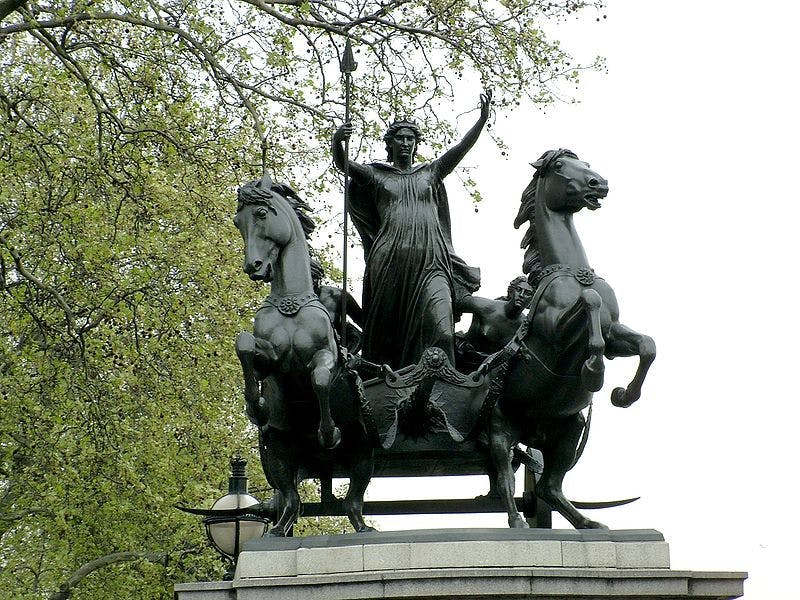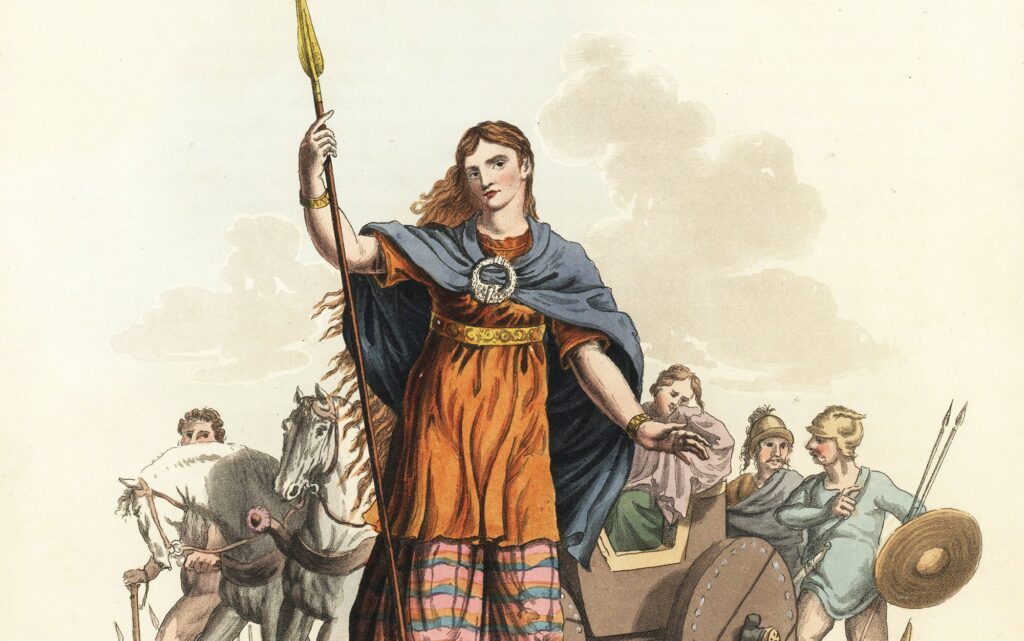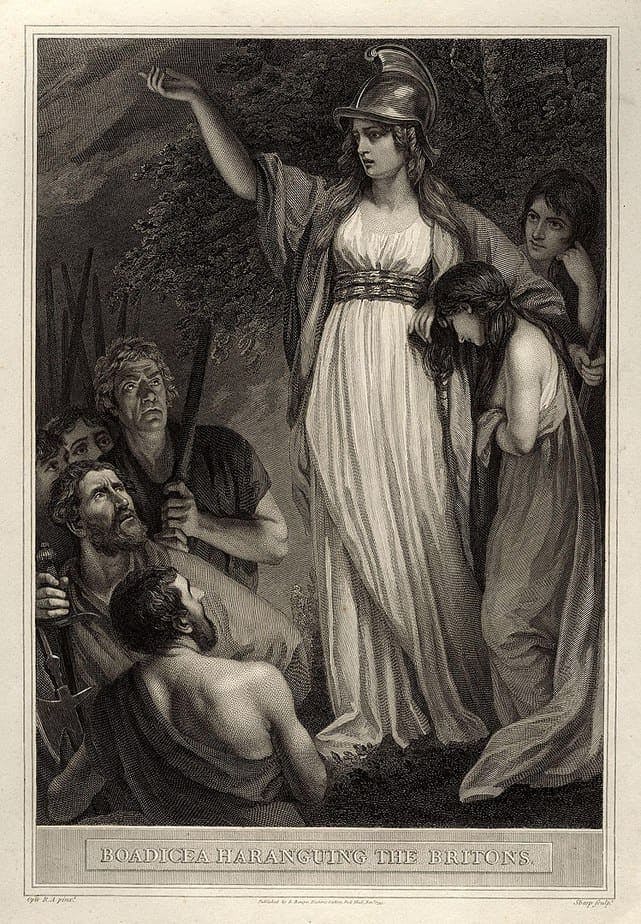A tale of resolute vengeance unfolds as we delve into the saga of Boudica (sometimes Boadicea). She was the fearless Celtic queen who defied the Roman Empire. Leading her tribe on an astonishing crusade, she conquered three cities. Her thirst for retribution led to the demise of 70,000 individuals. Her story of determination and revenge continues to captivate historians and history enthusiasts alike.

Rise to Power: The Iceni Tribe and Roman Betrayal
Ruling the Iceni tribe in what is now East Anglia, eastern Britain, Boudica’s husband, King Prasutagus, had struck a deal with the Romans that allowed the Iceni to maintain partial sovereignty. However, upon Prasutagus’s death in 60 AD, the Romans reneged on their promise, seizing Iceni land. Boudica and her daughters were captured, publicly flogged, and raped. Instead of breaking her spirit, the unspeakable betrayal ignited a burning passion for vengeance. She plotted her revenge against the empire that had violated her and her family.
The Fall of Camulodunum: The First Conquest
Determined and resolute, Boudica allied with the neighboring Trinovantes tribe, rallying an army of warriors to challenge Roman rule. Her first target was Camulodunum, now known as Colchester. Boudica launched a relentless attack on the city, joined by other tribes, leaving nothing but destruction and carnage in her wake.

The Sacking of Londinium: The March on the Future London
With Colchester smoldering, Boudica set her sights on Londinium, the burgeoning Roman settlement that would eventually become London. As her forces advanced, Roman governor Suetonius Paulinus made the tough call to abandon Londinium, realizing he couldn’t protect it. Boudica’s army stormed through the city, leaving a trail of devastation behind them.
The Destruction of Verulamium: The Final Conquest
Next, Boudica targeted Verulamium, now St. Albans. Like the cities before it, Verulamium met a brutal end at the hands of Boudica’s vengeful warriors, with its inhabitants massacred and buildings burned.

The ferocity of Boudica’s onslaught left the seasoned Romans reeling. Her revolt claimed the lives of nearly 70,000 people, including Roman citizens and British collaborators. The destruction was so widespread that the “Boudican Destruction Horizon,” characterized by layers of charred remains, continues to be unearthed by archaeologists.
The Final Battle: Confrontation with Governor Suetonius Paulinus
But Boudica’s rebellion was ultimately short-lived. Governor Suetonius Paulinus confronted her forces in a climactic battle, the location of which remains unknown. Despite being outnumbered, the Romans leveraged their tactical prowess and discipline to triumph, quashing Boudica’s uprising.

The Enigmatic End: Boudica’s Mysterious Fate
The final moments of her life remain shrouded in mystery. Some believe she took her own life to avoid capture, while others argue she succumbed to illness following her defeat. Regardless, this queen’s legacy endures as a testament to her indomitable spirit and the extraordinary measures she took to avenge her people.
Today, the legend of Boudica’s ferocious campaign is a powerful reminder of the tenacious resolve of a warrior queen who challenged an empire and left an indelible mark on the pages of history.
“On this spot we must either conquer, or die with glory. There is no alternative. Though a woman, my resolution is fixed: the men, if they please, may survive with infamy, and live in bondage.”
Boudica



